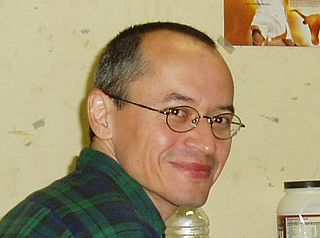A Quote by Chris de Burgh
Robert Browning - I like his dramatic revelations, his allegorical form.
Related Quotes
There's a line in The Barretts of Wimpole Street - you know, the play - where Elizabeth Barrett is trying to work out the meaning of one of Robert Browning's poems, and she shows it to him, and he reads it and he tells her when he wrote that poem, only God and Robert Browning knew what it meant, and now only God knows. And that's how I feel about studying English. Who knows what the writer was thinking, and why should it matter? I'd rather just read for enjoyment.
All that is limited by form, semblance, sound, color is called object. Among them all, man alone is more than an object. Though, like objects, he has form and semblance, He is not limited to form. He is more. He can attain to formlessness. When he is beyond form and semblance, beyond "this" and "that," where is the comparison with another object? Where is the conflict? What can stand in his way? He will rest in his eternal place which is no-place. He will be hidden in his own unfathomable secret. His nature sinks to its root in the One. His vitality, his power hide in secret Tao.
Abused as we abuse it at present, dramatic art is in no sense cathartic; it is merely a form of emotional masturbation. It is the rarest thing to find a player who has not had his character affected for the worse by the practice of his profession. Nobody can make a habit of self-exhibition, nobody can exploit his personality for the sake of exercising a kind of hypnotic power over others, and remain untouched by the process.
He's at ease, his body sculpted to the music, his shoulder searching the other shoulder, his right toe knowing the left knee, the height, the depth, the form, the control, the twist of his wrist, the bend of his elbow, the tilt of his neck, notes digging into arteries, and he is in the air now, forcing the legs up beyond muscular memory, one last press of the thighs, an elongation of form, a loosening of human contour, he goes higher and is skyheld.
The personality of the artist, at first a cry or a cadence or a mood and then a fluid, and lambent narrative, finally refines itself out of existence, impersonalises itself, so to speak. The aesthetic image in the dramatic form is life purified in and reprojected from the human imagination. The mystery of aesthetic like that of material creation is accomplished. The artist, like the God of the creation, remains within or behind or beyond or above his handiwork, invisible, refined out of existence, indifferent, paring his fingernails.




































